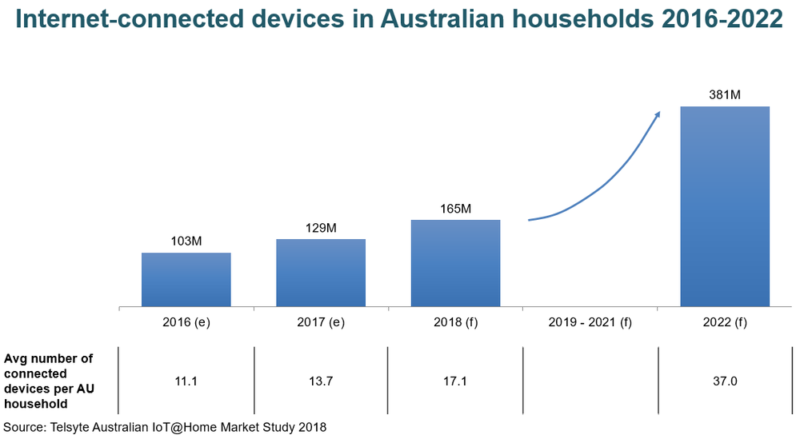
Marketers can’t ignore the rise of smart speakers, claims researcher
Household adoption of connected devices is providing a range of opportunities for marketers, claims a report by IT consultancy Telstyte.
“Marketers can’t ignore the rise of smart speakers as a new digital interface,” says Telsyte managing director Foad Fadaghi.

Telsyte managing director Foad Fadaghi: ““Marketers can’t ignore the rise of smart speakers.”
Fodaghi estimates around half a million Australian households currently own a smart speaker, mainly Google Home devices that got a jump on the market. Telsyte forecasts the number will grow to around 3 million by 2022.
Late last year, Officeworks launched its voice assistant which allowed consumers will be able to add new products to their ‘shopping list’, search product information, check product availability in-store, find stories and trading hours and place orders.
In media, radio networks have been moving into the voice activated device market, with ARN and Southern Cross Austereo both launching channels aimed at Amazon Alexa and Google Voice devices.
“Research shows that many consumers are placing these devices in the kitchen and family areas, allowing for creative ways to deliver voice command services into home,” Fadaghi told Mumbrella.
“For marketers this might be through experimenting with the extending of web or mobile app based services in the first instance.”

Telsyte forecasts around 3 million Australian households will have a smart speaker by 2022, with around half a million Australian households currently owning a smart speaker, up from less than 10,000 in 2016.
Fadaghi believes the smart lifestyle sector, consisting of appliances and house and garden products, will be the largest sector by 2022, as manufacturers bring to market products with built in Internet connectivity as a standard feature.
“Building connectivity into consumer products will allow manufacturers to develop new business models and provide intelligent services that not only change consumers’ lifestyles, but disrupt a number of traditional industries,” says Fadaghi.
The smart speaker category was the fastest growing sector in 2017, with Google Home and Google Home mini being the market leaders driven by holiday season sales, free giveaways with Pixel 2 smartphones, and retailers’ multipack offers. Telsyte expects Apple and Amazon to catch up as their products became more widely available in 2018.
However, despite the potential growth of the connected device market, the Telsyte report identified challenges including privacy and cyber security concerns. Some 41 percent of Australians are “more concerned about cybersecurity than last year” and 61 percent are concerned about their private information being exposed online, up five percent from the previous year.



Perhaps not, but consumers sure can. Only a complete idiot would put one of those things in their home. Have every private conversation relayed, recorded, analysed and sold 24/7? PT Barnum was right – there IS a sucker born every minute.
@Mike do you also think Facebook is listening to you through your phone and then using that to target ads? Or is Samsung bugging your TV so they can make you buy a new fridge… Perhaps your Volvo is burning fuel too fast so that in partnership with BP they can sell you more than you need… The world hates you Mike and they all want to get you…
Hi Mike,
That’s not (currently) how these devices work. They have two processing units – one to listen for the keywords, and one to process the rest of the information. The former is the one that’s always on – anything it hears other than ‘hey Google’ is disregarded.
It would require immense resource to listen and process literally everything, or even introduce other keywords for interpretation.
Not saying it won’t happen, but that’s not where it’s at right now.
We are indeed out to get Mike. Morning, noon, and night, we think only of how to better target specifically, Mike. A display ad alternating between The Greatest Showman DVD and clown-wear will be sent to Mike shortly.
3% of consumers return to an Alexa voice skill after the second week. We have a long way to go until this is a viable option for advertisers;
particularly in Australia where we have low penetration and scale.